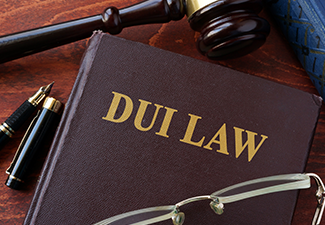Frequently Asked Questions About DUI
May 6, 2024
 Driving under the influence (DUI) is a serious offense that carries significant legal repercussions. Because of this, if you or a loved one has been accused of or charged with a DUI, you likely have many questions.
Driving under the influence (DUI) is a serious offense that carries significant legal repercussions. Because of this, if you or a loved one has been accused of or charged with a DUI, you likely have many questions.
At our firm, Schwartz, Hanna, Olsen & Taus, P.C., we are here to help you answer these pressing questions about DUI charges, processes, and consequences. Whether it's understanding your rights during a traffic stop or knowing the potential impacts on your driving record, we've got you covered with essential insights.
1. What Is Considered a DUI in New Jersey?
In New Jersey, driving under the influence (DUI) is defined as an adult 21 years or older operating a motor vehicle with a blood alcohol concentration (BAC) of 0.08% or higher.
2. Are There Different Penalties for First-Time and Repeat DUI Offenders in New Jersey?
Yes, penalties for DUI in New Jersey escalate with each offense. First-time offenders face fines, potential jail time, and license suspension, while repeat offenders face increased penalties, including longer license suspension periods and mandatory jail time.
3. Can You Refuse a Breathalyzer Test in New Jersey?
Although you can technically refuse a breathalyzer test in New Jersey, doing so results in an automatic suspension of your driving privileges and incurs penalties similar to those for DUI offenses, under the implied consent law.
4. What Are the Penalties for a First-Time DUI Offense in New Jersey?
Penalties may include a fine of $250 to $400, up to 30 days in jail, a license suspension of 3 months, and mandatory participation in an intoxicated driver resource center.
5. Is It Possible to Get a Conditional or Hardship License in New Jersey After a DUI?
New Jersey does not currently offer conditional or hardship licenses for those who have had their license suspended due to a DUI conviction.
6. What Is an Ignition Interlock Device and Is It Required for DUI Convictions in New Jersey?
An ignition interlock device (IID) requires the driver to provide a breath sample that proves they are not under the influence of alcohol before the vehicle can start. New Jersey law mandates the installation of IIDs for all DUI convictions, including first offenses, during the period of license suspension and for six months to a year after restoration.
7. How Does a DUI Conviction in New Jersey Affect Your Auto Insurance?
A DUI conviction typically results in significantly higher auto insurance premiums. The offender may also be required to file an SR-22 form, proving they have insurance coverage that meets minimum liability requirements.
8. Can a DUI in New Jersey Be Expunged From Your Record?
DUI convictions are not eligible for expungement in New Jersey, as they are considered traffic offenses rather than criminal offenses.
9. What Happens If You're Caught Driving With a Suspended License Due to a DUI in New Jersey?
Driving with a suspended license after a DUI conviction can lead to additional penalties, including fines, extended suspension of driving privileges, and possible jail time.
10. What Is the Role of a Substance Abuse Evaluation in DUI Cases in New Jersey?
In New Jersey, anyone convicted of a DUI is required to undergo a Substance Abuse Evaluation by the Intoxicated Driver Resource Center (IDRC). The evaluation determines the extent of the offender's substance abuse issues and recommends appropriate treatment or education, which the offender must complete as part of their sentencing.
11. Are There Any Legal Alternatives to Serving Jail Time for a DUI in New Jersey?
For certain DUI offenders, particularly first-time offenders, New Jersey courts may allow participation in community service or attendance at an Intoxicated Driver Resource Center (IDRC) program as alternatives to serving jail time. However, the specific alternatives available depend on the court's discretion and the details of the offense.
12. How Does New Jersey Enforce DUI Laws for Drivers of Commercial Vehicles?
In New Jersey, commercial drivers are held to stricter DUI standards than non-commercial drivers. The legal blood alcohol concentration (BAC) limit for commercial vehicle drivers is 0.04%, half that of the limit for non-commercial drivers. A DUI conviction for a commercial driver can result in a longer suspension of their commercial driver's license (CDL), potentially impacting their employment and livelihood.
13. How Can Our Firm Help You Through a DUI?
Understanding the stakes involved in DUI cases, our primary goal is to protect your future. This involves not only addressing the immediate legal challenges but also advising on ways to minimize the long-term impact of a DUI charge on your life, including potential effects on employment opportunities, professional licensing, and personal relationships.
If you’re located in the New Jersey areas of Somerset County, Morris County, Passaic County, Essex County, and Bergen County, or anywhere else in the state, and are facing DUI charges, our team at Schwartz, Hanna, Olsen & Taus, P.C., is here to help. Our approach combines rigorous legal advocacy with a deep commitment to our clients’ well-being. Contact us today to discuss your case and learn how we can assist you through this difficult time.
